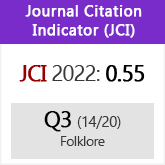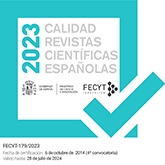Identidades étnicas en Tarapacá a inicios del siglo XXI
DOI:
https://doi.org/10.3989/rdtp.2005.v60.i2.101Keywords:
Social Identities, Ethnicity, Indigenous People, Northern ChileAbstract
The author has done research on the processes of formation of ethnic identities in the región of Tarapacá, in northern Chile. She argues that the indigenous people in Tarapacá have recently tried to shake off the stigma of «Indianness» by using elements of modernity in asserting their ethnic identity. Beyond other signs for identity-building, they have resorted to ethnicity as they strive to be included in a historically excluding system. This strategy depends upon defining and reproducing the symbolic borders with the q'ara, the Aymara category for the «other»: he or she who does not descend from the «Inca» For them the «Inca» represents the past, a mythical space-time and a system of norms and values that serves as a guide for the practices of the present. Yet this process is conflictive and heterogeneous, since this indigenous people are diverse in terms of class, gender and degree of acculturation.
Downloads
Download data is not yet available.
Downloads
Published
2005-12-30
How to Cite
Gavilán, V. (2005). Identidades étnicas en Tarapacá a inicios del siglo XXI. Disparidades. Revista De Antropología, 60(2), 77–102. https://doi.org/10.3989/rdtp.2005.v60.i2.101
Issue
Section
Articles
License
Copyright (c) 2005 Consejo Superior de Investigaciones Científicas (CSIC)

This work is licensed under a Creative Commons Attribution 4.0 International License.
© CSIC. Manuscripts published in both the printed and online versions of this Journal are the property of Consejo Superior de Investigaciones Científicas, and quoting this source is a requirement for any partial or full reproduction.All contents of this electronic edition, except where otherwise noted, are distributed under a “Creative Commons Attribution 4.0 International” (CC BY 4.0) License. You may read here the basic information and the legal text of the license. The indication of the CC BY 4.0 License must be expressly stated in this way when necessary.
Self-archiving in repositories, personal webpages or similar, of any version other than the published by the Editor, is not allowed.















